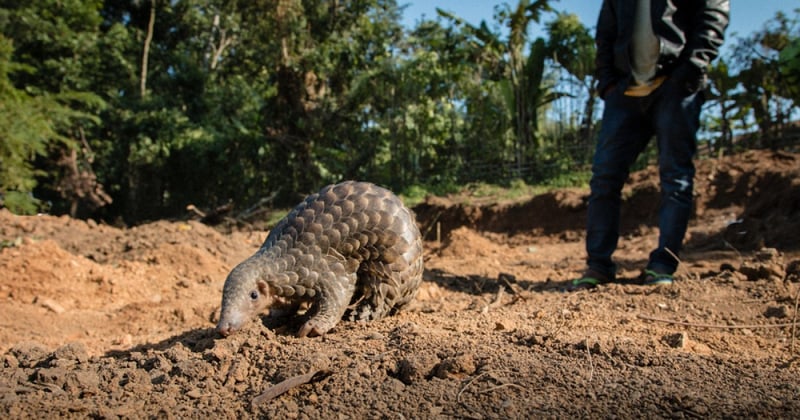
New research offers plant-based alternatives to traditional medicine
News
New research from Wildlife Conservation Research Unit (WildCRU), the University of Oxford offers hope for wildlife, as the Traditional Chinese medicine (TCM) market accepts plant-based alternatives. But, will this ensure a cruelty-free future for Traditional Medicine?
One of the key drivers of the global wildlife trade is the demand for animal parts and derivatives in traditional medicines. Consequently, recognising effective ways to decrease this demand will help protect wildlife from suffering and extinction.
In hopes of revealing new evidence and insights into the use of wildlife in Traditional Medicine, we teamed up with the Wildlife Conservation Research Unit (WildCRU), the University of Oxford.
Our joint Chinese / British team of scientists examined different facets of "TCM[MP1]" as well as international (CITES) trade records.
The findings, combined with interviews with thousands of TCM doctors and consumers [MP2] across China, were shared via a global online symposium, on November 30 2021, with the international scientific community, attended by over 100 people across the globe.
KEY FINDINGS: POTENTIAL FOR CHANGE
- Official Traditional Medicine currently includes 70 different animal species. From 2008-2018 China exported 23 metric tonnes of medicine derived from these species.
- Wider Chinese Medicine can involve 2341 animal species. Between 2008-2018 China exported more than 5 metric tonnes of medicines derived from some of these species.
- Between 2008 to 2018, China imported 36 different species with no prior textual evidence for use in official TCM or wider Chinese Medicine, including more than 2,000 kg of seahorse and over 21,000 kg of pangolin scales and skins.
Despite further exposing the scale of Traditional Chinese Medicine’s consumption of biodiversity highlighted above; promisingly, the research did reveal:
- Consumers will embrace plant-origin alternatives: 89% of regular consumers of Traditional Medicine said they would be willing to buy plant-origin substitutes instead of animal-based medicines.
- 80% of Chinese Traditional Medicine doctors* are willing to prescribe plant-origin alternatives – with the more experienced doctors being more willing to do so.
Professor David Macdonald, Director, WildCRU University of Oxford, illustrates the significance of this consumer interest:
“The fact that many regular consumers of TCM are likely to be happy to replace animal-origin medicines with sustainable plant-origin alternatives, and that the majority of their doctors are also likely to be happy to prescribe plant-origin alternatives, suggests that redirecting consumer demand could be a successful sustainable strategy. A win-win for both the conservation and welfare of wild animals for TCM.”
So, does this mean a sustainable plant-based future for TCM? Not entirely.
World Animal Protection are calling on relevant government agencies, as well as other stakeholders in the traditional medicine market, to support further development and promotion of herbal substitutes to wildlife in medicines.
As Gilbert Sape, Wildlife Campaigner, World Animal Protection explains:
“TCM consumers, professionals, scholars and government agencies must unite to make this happen – and we stand by with them to facilitate this transition."
Published research papers and recorded scientific talks can be viewed using the following link.
89% of regular consumers of traditional medicine said they would be willing to buy plant-origin substitutes instead of animal-based medicines.